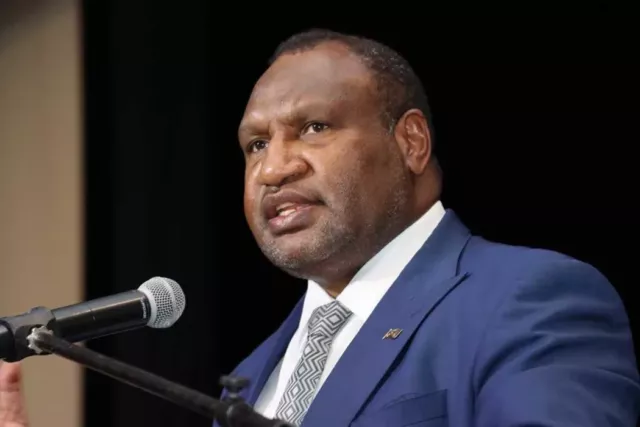Papua New Guinea Prime Minister James Marape has announced that his government will introduce a new Domestic Terrorism Bill during the November Parliament session, aimed at empowering law enforcement agencies to combat growing lawlessness, including tribal violence.
This legislative push follows a recent outbreak of deadly tribal conflict in Enga Province, which prompted the government to extend the ongoing State of Emergency (SOE) in the region.
Marape stressed that the bill, now approved by Cabinet, would give the police and defence forces “wide-ranging powers” to prevent and respond to violence, allowing for proactive policing and swift intervention.
He also emphasised the need to adopt modern technology, such as drones, to monitor and contain lawlessness, while ensuring those harboring criminals or aiding violence are prosecuted.
“This is a tough law that allows the police to be proactive rather than reactive, and it will supersede many of the provisions under the Police Act,” Marape said.
“This bill will give wide-ranging powers to police and those called upon in policing duties, whether from the military or elsewhere, for search and rapid-fire response, and for the protection of police and all agencies of State who are participating in law enforcement.
“It will also necessitate the use of drone and available technology to prevent and contain lawlessness and prosecute those who harbour lawbreakers or participate in breaking the law.
“This is a tough law that allows the police to be proactive rather than reactive and will supersede many of the laws that are covered under the Police Act.
“This law will empower our policemen, the Police Commissioner and full agents of law enforcement, to confront those who terrorise our communities in stiffer police operations,” said the Prime Minister.
Prime Minister Marape said for the recent incidents of violence in Enga, he has met the Police Commissioner, the Commander of PNGDF and concerned ministers and has directed that the State of Emergency be extended along the Highlands Highway in the Enga area to Laiagam District, covering also Kompiam, Porgera, and Wabag districts.
“We are extending the State of Emergency, and I have directed that Police and Defence Force make arrests, instead of acting as mediators in these tribal conflicts.”
PM Marape said from reports received, the killing was done out of revenge as part of a tribal conflict.
“I want to appeal to our people who turn to guns for revenge in resolving disputes; breaking the law does not justify the action for the wrong already committed.
“In Tuesdaday’s killing incident happening in that part of the Highlands Highway, from the information I received, it was done out of revenge. I want to tell our people, revenge through tribal means has no place in our modern society,” he said.
The Prime Minister added that Government is also considering outlawing compensation based on consultations and discussions it has been having, including increasing sentencing penalties to the maximum and life imprisonment for initiators of tribal conflicts.
“We want to hold those responsible in tribal fights accountable for these acts of violence, just as those who are killing people.
“If you cause a tribal fight, you will be held responsible, and we are looking at increasing the maximum penalty, even life imprisonment, for those who initiate these fights. From a small incident, tribal fights suck in the community and become massive socio-economic problems for our communities. The two principal initiators of the tribal conflict will be held to account.”
PM Marape also indicated that Parliament might be called upon to pass the SOE for the highlands provinces that continue to experience higher incidents of lawlessness, adding that instructions have gone out to Treasury to resource the enforcing agencies to better maintain law and order in the provinces and NCD.
Despite these strong pronouncements, the government has faced criticism over its response to the violence in the Highlands region. Following the recent killings, journalists raised concerns about the Prime Minister’s delayed response.
An ABC reporter questioned why the government has not taken a tougher stance against the recurring conflicts that have claimed many lives.
Journalists have noted growing frustration over the government’s failure to provide timely reactions to violent incidents, with many calling for stronger and more decisive action from the leadership.
In addition to the “Domestic Terrorism Bill”, Marape hinted that Parliament may be asked to pass a broader SOE mandate for provinces that continue to experience high levels of violence. He also confirmed that Treasury has been directed to allocate more resources to law enforcement agencies to help them better manage law and order challenges across the Highlands and National Capital District (NCD).
The proposed changes are part of a broader strategy by the Marape-Rosso government to tackle lawlessness and reestablish peace in conflict-prone areas. With the situation in Enga Province still volatile, the government faces mounting pressure to deliver effective solutions to ensure public safety and maintain social stability.
The forthcoming parliamentary session in November will be a critical moment, as the government seeks to push through the new law and assert control over escalating violence in the Highlands region.














